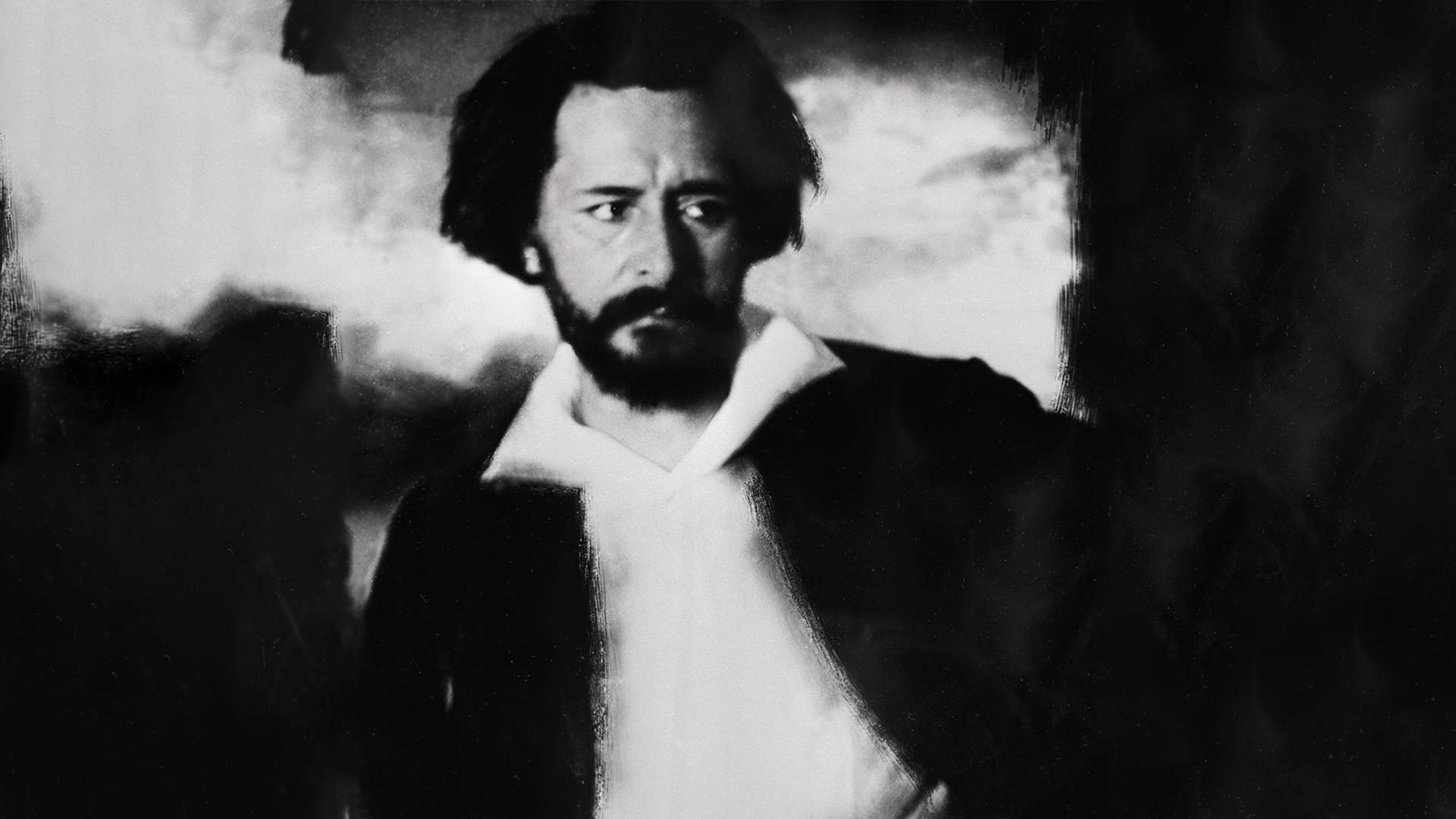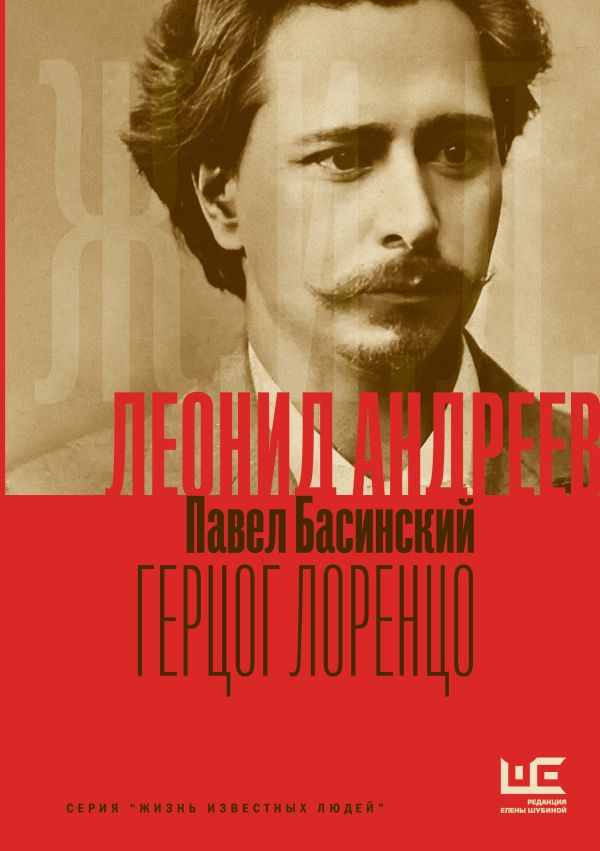The aristocrat of a troubled spirit: he tried to scare Leo Tolstoy

Pavel Basinsky puts the most famous phrase about Leonid Andreev — "He scares, but I'm not afraid" — traditionally attributed to Leo Tolstoy in the epigraph of his book, where he does not pretend to create an "exhaustive biography" of one of the most colorful and mysterious personalities of the Silver Age. Focusing on the early period of his hero's life, Basinsky admits that much of Andreevsky's fate is not entirely clear to him, and refers the reader for details to someone else's, more thorough research. But Basinsky's most intriguing admission is that, unlike Tolstoy, he is sometimes really scared of coming into contact with Andreev and his "terrible texts." Critic Lidia Maslova presents the book of the week — especially for Izvestia.
Pavel Basinsky
"Leonid Andreev: Duke Lorenzo"
Moscow : AST Publishing House : Edited by Elena Shubina, 2025. 380 p.
Tolstoy's meme, which has long been in independent circulation without any connection with the author of The Abyss and Darkness, needs some clarification: Basinsky sheds light on the history of its origin at the end of the book, where he quotes one of Maxim Gorky's letters to Andreev. Gorky writes that this is not the first time he has discussed the writings of his friend "Leonidushka" with Tolstoy, and rather ruthlessly retells a Tolstoy anecdote steeped in grandfatherly condescension towards a young lover of "horror stories": "There is an anecdote about a boy who told a fairy tale to his friend in this way.: "It was a dark night, are you afraid? There was a wolf in the forest — are you afraid? Suddenly, outside the window, are you afraid?" That's Andreev, too: he writes and keeps asking me.: "Are you afraid? Are you afraid?" But I'm not afraid! What, you took it!"
By this point, the reader had already become sympathetic to Andreev as a man who was struggling to balance in a state of fragile mental balance, and therefore can imagine how much Tolstoy's humorous metaphor hurt the novice writer. Basinsky confirms this by quoting Andreev's reply letter.: "Tolstoy very wisely and venomously gave a story about a boy. The head! But is it really true after all; what do you think, Alexey? I am very glad that you seem to have a good relationship with him..." What seemed to Alexey remains unclear, and the end of Andreevsky's worried letter, alas, has not been preserved. "It's a pity: it would be interesting to know Andreev's opinion about Gorky's relationship with Tolstoy," complains Basinsky, who builds an interesting three—pronged construction of mutual reflections and draws an analogy between two literary pairs Gorky — Tolstoy and Andreev—Gorky: "The difference is that Gorky, who fell into the clutches of the great Lion, was a strong character. Andreev was a weak person, initially prone to mental submission, and Gorky's influence had a positive effect on him, but the process of internal struggle with him did not harden him, but strengthened him even more."

Basinsky traces the inconsistency, duality, or even multiplicity of Andreevsky's personality back to his childhood in Orel: "How did it happen that from an Orel-Moscow stay-at-home who could not imagine his everyday life without a samovar on the common table (his mother, Anastasia Nikolaevna, even brought him a samovar to Capri, and one can imagine how this pot-bellied the Tula samovar traveled through half of Europe, and then by sea to an exotic island), turned out to be a rebel and a hater of philistinism in all its manifestations... However, it is not difficult to find an explanation for how seemingly incompatible things could get along in Andreev in his heredity. Basinsky analyzes it in some detail, first introducing the picturesque image of his father, Nikolai Ivanovich, who in himself looks like a ready-made literary character: "A builder, a lover of nature, a passionate gardener, a fist fighter and a heavy drinker. If we add to this that Nikolai Ivanovich was a modest employee of the Orel bank by profession, then his personality seems to be somewhat fantastic..."
Thanks to his father's original nature with his "folk humor" (he sometimes liked to tie the legs of drunken guests who fell asleep or sew their clothes to mattresses, and then wake them up with a sharp sound), Leonid learned from childhood what a "carnival", laughing culture was, long before his countryman Mikhail Bakhtin formulated this concept. His mother, whom Leonid called "holy anxiety," who doted on her son, was the exact opposite of his father, and although she wrote with monstrous mistakes, she was able to compose beautiful tall tales. Due to the multidirectional parental influences, the personality of the future writer, according to Basinsky, seemed to split into two parts: "A man of remarkable efficiency, prudent in publishing, but prone to binge drinking and scandals, he was at the same time remembered by his contemporaries as a man exceptionally gentle and kind-hearted, responsive to friendship and, moreover, a natural visionary, an amateur to grasp different "stories" on the fly and develop them with talent."
From his mother, Basinsky notes, referring to the opinion of Leonid's brother Pavel, the writer inherited a great mental quality that hinders life — the ability to see drama even where there is none: "When you read Andreev's diary before he moved to Moscow, you get the feeling that he always feels bad. "I feel terrible," is the refrain of this diary." The feeling of constant inner discomfort, disorder, and unwillingness that reigned in Andreev's soul permeates Basinsky's entire book. In his early autobiographical story "He, She and Vodka," Andreev writes about himself in the third person: "He was missing a screw. Whether in my head or elsewhere, it wasn't enough. It was extremely uncomfortable. Everything was staggering, creaking, falling, and one thing interfered with the other." And analyzing the touching Easter story written to order in 1898, "Bargamot and Garaska," after which the author woke up famous, Basinsky reveals the main theme of Andreevsky's work.: "the contrast of "light" and "darkness", the feeling of chaos raging behind the thin walls of harmony and constantly threatening to destroy it."
Basinsky begins to explain the title of his book, where the nickname "Duke Lorenzo" is added to the writer's name, in the second chapter — "The Duke of Orlov." "Because of his proud and gloomy appearance, they called him the Duke," Basinsky writes, saying that already at the gymnasium Leonid began to smoke ("smoking was almost the norm for high school students at the end of the 19th century"), drink alcohol, had endless affairs with high school girls and generally "walked in authority." Later, the adult Andreev would develop his "ducal" myth in every possible way, which would be supported one way or another by people who knew him, for example, Korney Chukovsky, who was ironic about the huge house that the wealthy Andreev built for himself in Finland: "The hyperbolic style of his books corresponded to the hyperbolic style of his life. No wonder Repin called him "Duke Lorenzo." He should have lived in a gilded castle, walking on luxurious carpets, accompanied by a brilliant retinue. It suited him, it was like he was born for it."
Duke Lorenzo di Spadaro, who suffers from a split personality, is the hero of Andreev's play "Black Masks," but the writer also had some reason to identify with the Florentine Renaissance statesman Lorenzo di Piero de' Medici. Leonid Andreev's striking external resemblance to the portrait of Lorenzo de' Medici by Giorgio Vasari, hanging in the Uffizi Gallery, is pointed out by Basinsky, giving food for thought of a somewhat mystical nature in a typically Andreev spirit: "...If we assume the reincarnation of souls (which, of course, is unlikely) or a genetic subconscious memory, then much in the life of this mysterious writer and man will fall into place. <...> His constant dissatisfaction with himself and the people around him will become clear. A prominent Florentine politician and poet should have lived in the wrong time, the wrong person, and the wrong environment. There was something wrong with him and around him. He felt it, but he couldn't explain it to himself."
Переведено сервисом «Яндекс Переводчик»




